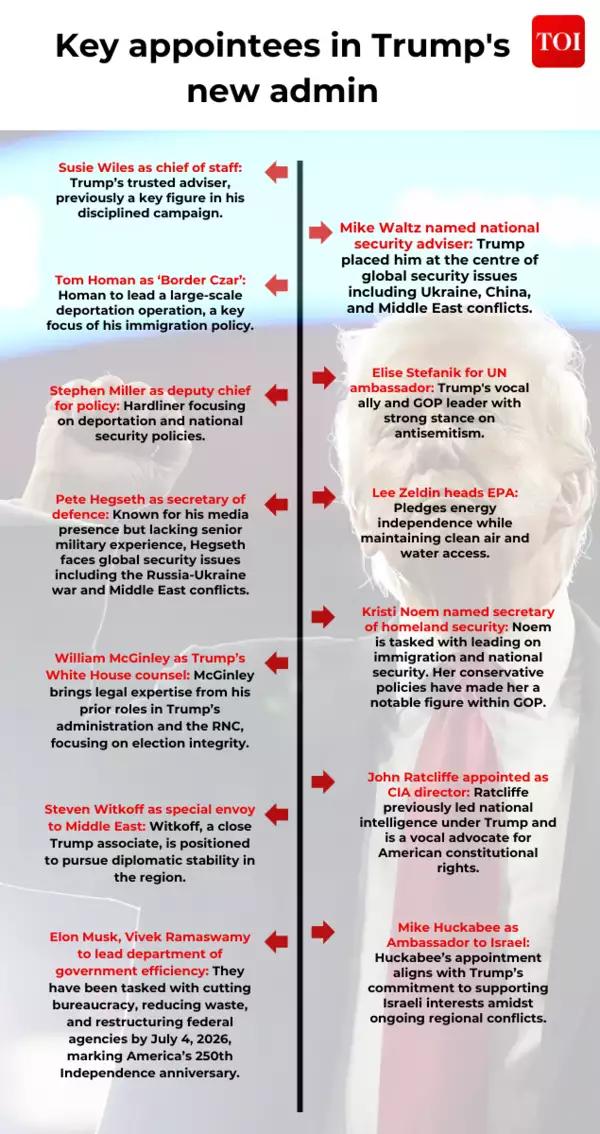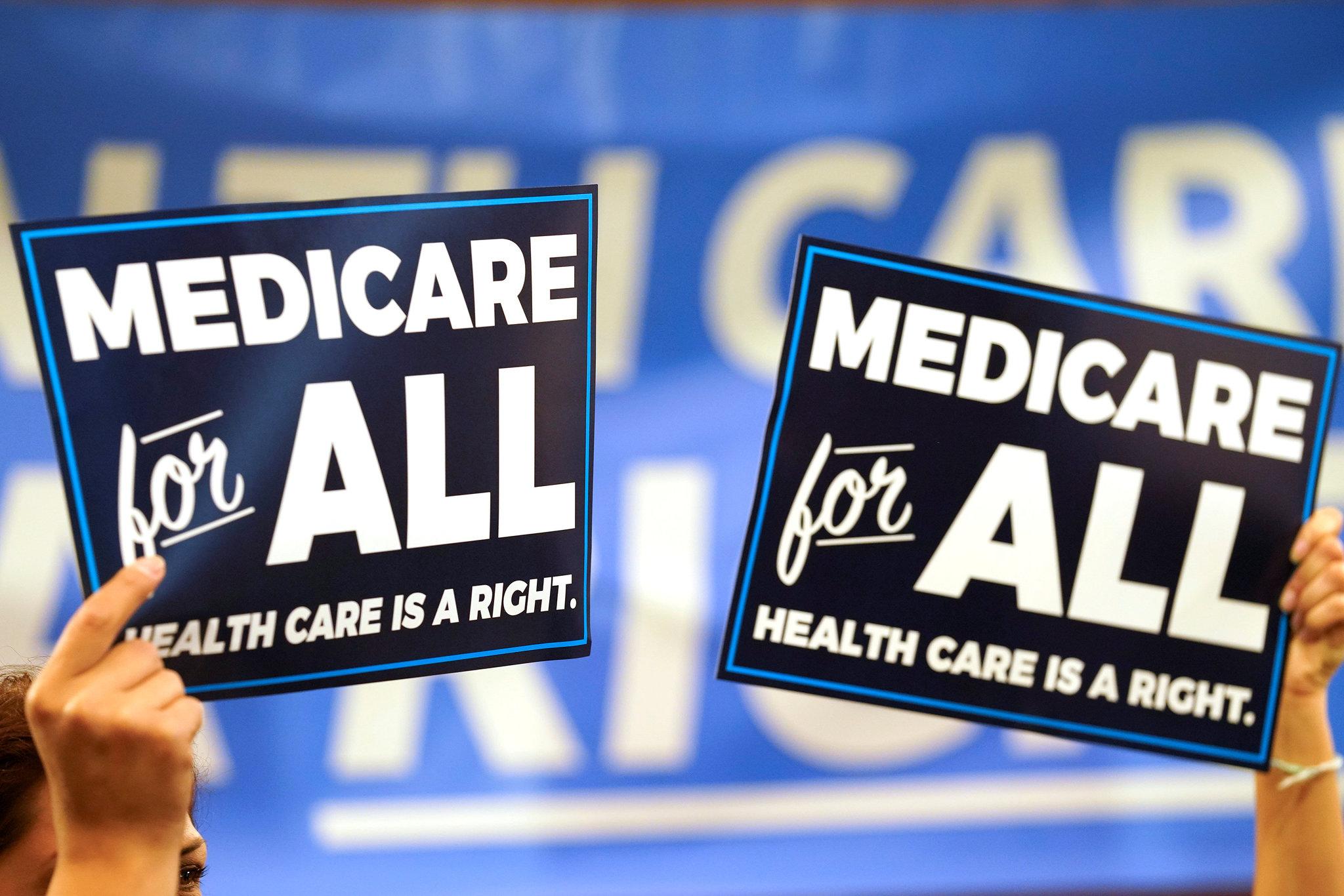As the political landscape continues to shift in the wake of the recent midterm elections, the debate surrounding healthcare reform has once again taken center stage. The concept of “Medicare for All” has ignited passionate discussions among policymakers and citizens alike, promising a comprehensive solution to the nation’s healthcare woes. Meanwhile, the startling appointment of Dr. Oz—once a celebrity doctor and now a political figure—has raised eyebrows and stirred curiosity about how his presence might influence the conversation about healthcare in America. With former President Trump’s administration leaning toward a faction that has historically been skeptical of universal healthcare proposals, this article seeks to explore the intersection of these two narratives: the potential for Medicare for All to gain traction in a climate shaped by Dr. Oz’s appointment and the challenges that lie ahead. Join us as we navigate the complexities of healthcare reform, probing the societal and political implications of this pivotal moment in American history.
The Impact of Trumps Appointment on Healthcare Policy Dynamics
The landscape of healthcare policy in the United States is poised for significant shifts following Trump’s latest appointment. With a leader known for his unpredictable and polarizing approach, stakeholders are left to ponder the implications for ongoing debates such as Medicare for All. This initiative, championed by various Democrats and a segment of the public, aims to provide universal healthcare coverage. In contrast, the return of Trump-like figures, such as Dr. Oz, may signal a bullish push for market-driven reforms that emphasize innovation and private sector involvement. This polarization raises critical questions about how healthcare will evolve amidst the competing ideologies.
As varying perspectives vie for dominance, the potential outcomes could lead to a more divided nation on the topic of healthcare reform. Stakeholders may anticipate several scenarios:
- Increased Advocacy for Medicare for All: Grassroots movements could gain momentum, fueled by public dissatisfaction with existing systems.
- Focus on Private Sector Solutions: The Trump administration’s allies might prioritize initiatives that encourage competition and reduce regulation.
- Potential Compromise Solutions: A middle ground may emerge in response to public demands, leading to hybrid models of insurance.
| Perspective | Key Features |
|---|---|
| Medicare for All | Universal coverage, Reduced out-of-pocket costs, Simplified billing |
| Market-Driven Reform | Increased choice, Innovative care models, Incentives for providers |
Each of these routes carries significant implications not just for policy makers, but also for millions of Americans grappling with healthcare costs and access. The trajectory of reform will highly depend on the ability of leaders on both sides to engage in earnest dialogue, consider public sentiment, and navigate through the complexities of the healthcare system. The appointment of familiar, yet contentious, figures could ignite passion among both advocates and opponents, making the next few years a pivotal period for healthcare in America.

Understanding the Case for Medicare for All Amidst Political Change
As political winds shift, the discourse surrounding universal healthcare in the U.S. has gained renewed momentum, particularly in light of recent appointments that may influence policy direction. The potential for Medicare for All to serve as a cornerstone of health reform is increasingly relevant. Advocates argue that a comprehensive public healthcare system could address systemic disparities and inefficiencies that have plagued the current model. Key benefits proposed by supporters include:
- Access: Ensuring all citizens receive necessary medical care without the burden of exorbitant costs.
- Quality: Promoting a focus on preventive care, reducing the reliance on emergency services.
- Simplicity: Streamlining the healthcare process by eliminating the complexity of multiple private insurance plans.
While the political landscape remains fragmented, the appointment of figures aligned with specific health policies may catalyze significant discussions around reform. Specifically, the emergence of Dr. Oz in a notable political role could shift the focus towards an examination of healthcare narratives and public opinion. The debate could be illuminated by comparative insights, encapsulated in the following table:
| Aspect | Medicare for All | Current System |
|---|---|---|
| Cost Efficiency | Potential for reduction in administrative costs | High overhead with multiple insurers |
| Coverage | Universal access for all | Often leaves millions uninsured |
| Preventative Care | Incentivizes early treatment | Reactive approach to health |
As voices rally for reform, understanding the intricate dynamics of proposed healthcare initiatives becomes essential. With debates like those stirred by political appointments, the conversation about Medicare for All has the potential to evolve into a defining issue, shaping both public policy and the healthcare landscape for years to come.
Dr. Ozs Healthcare Perspectives: Influence or Controversy?
Dr. Oz’s rise to fame and subsequent entry into the political arena have ignited a heated debate regarding healthcare perspectives in the United States. His approach often blends common health knowledge with a dose of popular sensationalism, leading to a polarized public perception. Supporters argue that Oz’s platform has the potential to bring healthcare issues into the limelight, thus influencing public policy discussions. They suggest that his celebrity status could help bridge gaps between complex healthcare methodologies and the average citizen’s comprehension. On the other hand, critics are concerned that his opinions may inadvertently spread misinformation. Many believe that his connections to former President Trump may steer healthcare discussions in a direction that prioritizes profit over universal healthcare solutions such as Medicare for All. These detractors worry that Oz’s approach might focus more on personal health narratives rather than addressing systemic issues. As the discourse around healthcare reform continues, the potential for significant compromise or reform remains uncertain, leaving citizens to navigate a complex web of advocacy and skepticism regarding their health needs.
| Aspect | Dr. Oz’s Influence | Potential Concerns |
|---|---|---|
| Public Engagement | Brings health issues to mainstream | May misinform public understanding |
| Policy Focus | Highlights personal health stories | Neglects systemic healthcare reforms |
| Healthcare Reform | Opens discussions on various options | Risk of prioritizing profit over people |
Navigating the Path Forward: Recommendations for Effective Reform Strategies
As the landscape of American healthcare continues to evolve amidst political shifts, it is crucial to consider a multifaceted approach toward reform that prioritizes accessibility, affordability, and quality of care. A comprehensive strategy for healthcare reform may involve the following key components:
- Community-Based Initiatives: Encourage local health systems to develop programs tailored to the specific needs of their populations, fostering engagement and grassroots support.
- Public-Private Partnerships: Leverage the strengths of both sectors to pilot innovative solutions that address gaps in care and improve the patient experience.
- Data-Driven Policies: Implement policies grounded in robust data analytics to monitor health outcomes and allocate resources effectively, ensuring that reforms are based on evidence rather than ideology.
When assessing the trajectory of healthcare reform, it may also be beneficial to establish a framework that encourages continual dialogue among stakeholders. This approach could involve:
| Stakeholder Group | Role in Reform |
|---|---|
| Government Agencies | Regulate and oversee healthcare policies |
| Healthcare Providers | Implement changes at the ground level |
| Patients | Feedback is vital for patient-centered care |
| Insurance Companies | Innovate insurance products that meet diverse needs |
Q&A
Q&A: Medicare for All vs. Dr. Oz – Will Trump’s Appointment Lead to a Push for Reform?
Q1: What is the current state of Medicare in the United States?
A1: Medicare, established in 1965, serves as a federal health insurance program primarily for individuals aged 65 and older, but it also covers certain younger individuals with disabilities. The program is often embroiled in discussions about accessibility, quality of care, and sustainability, particularly as the population ages.
Q2: What does “Medicare for All” mean?
A2: “Medicare for All” is a healthcare proposal that aims to provide comprehensive health coverage to all U.S. residents through a single-payer system. Advocates argue that it would simplify the healthcare system, reduce administrative costs, and ensure that everyone has access to essential medical services without the burden of high out-of-pocket expenses.
Q3: Who is Dr. Oz, and what role might he play in healthcare reform discussions?
A3: Dr. Mehmet Oz is a television personality and cardiothoracic surgeon who gained fame through the “The Dr. Oz Show.” His influence in the healthcare arena stems not only from his medical background but also his media presence, which brings significant visibility to various health topics. Appointed by former President Donald Trump to the President’s Council on Sports, Fitness & Nutrition, he may leverage his platform to influence discussions on healthcare reform.
Q4: How has Trump’s administration historically viewed healthcare reform?
A4: During his presidency, Donald Trump aimed to repeal and replace the Affordable Care Act (ACA) rather than embracing a single-payer system like “Medicare for All.” His administration focused on reducing regulations and increasing competition in the healthcare market, which often positioned it against more comprehensive government-led healthcare solutions.
Q5: Could Dr. Oz’s appointment lead to a shift in the healthcare debate?
A5: While Dr. Oz’s appointment might not directly change policies, his prominent public persona could reignite discussions about healthcare, particularly if he advocates for reform. His blend of medical expertise and media influence could bridge gaps between scientific evidence and public perception, presenting new angles on healthcare accessibility and wellness that resonate with both conservatives and progressives.
Q6: What are the potential implications of a push towards “Medicare for All”?
A6: A push towards “Medicare for All” could involve heated debates across political lines. Proponents argue it could eliminate the financial burden of medical debt and improve health outcomes by providing universal care. Critics worry about potential tax increases, funding challenges, and the impact on private insurance markets. The evolving discourse in the wake of any prominent political appointments, like that of Dr. Oz, could shape these discussions significantly.
Q7: What should we watch for in the coming months regarding healthcare reform?
A7: Observers should keep an eye on how Dr. Oz engages with health policy discussions and whether he addresses topics like Medicare or healthcare reform in his public appearances. Additionally, legislative initiatives at both state and federal levels may evolve, sparked by public discourse and advocacy surrounding these issues. The interplay between political appointments and healthcare policies may reveal shifting attitudes among both lawmakers and constituents.
Q8: What can individuals do to stay informed and engaged on these issues?
A8: Individuals can educate themselves by following reliable news sources, attending town hall meetings, and engaging in community discussions about healthcare. Joining advocacy groups that align with their beliefs about healthcare reform can also be a proactive way to voice opinions and influence change. Public engagement, especially in a democratic system, is pivotal in guiding healthcare policies moving forward.
Future Outlook
As we stand at the intersection of healthcare reform and political strategy, the debate surrounding “Medicare for All” versus the potential influence of figures like Dr. Oz under Trump’s appointment cannot be underestimated. While advocates champion universal healthcare as a moral imperative, opponents raise concerns about its feasibility and implications. The coming months will undoubtedly reveal how these dynamics unfold, testing the resilience of existing policies and the urgency for reform. As each side rallies supporters and hones their arguments, it’s clear that this discussion is not merely about healthcare systems, but about the fundamental values that shape our society. The story is far from over, and as voters and policymakers engage, it will be up to us to discern the future trajectory of American healthcare—from a patchwork of options to a unified vision of accessibility for all. Only time will tell which path we will ultimately tread.